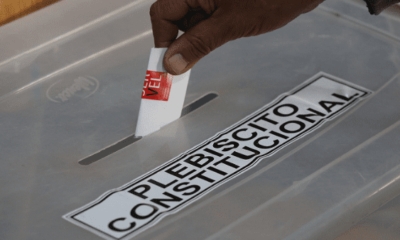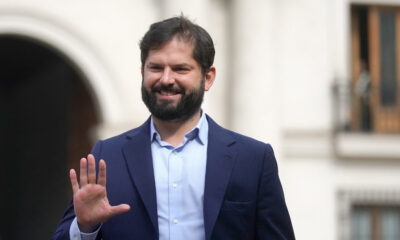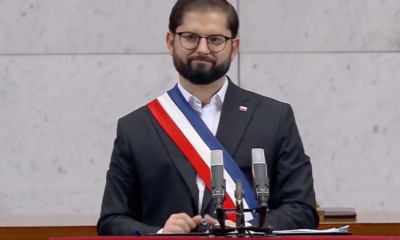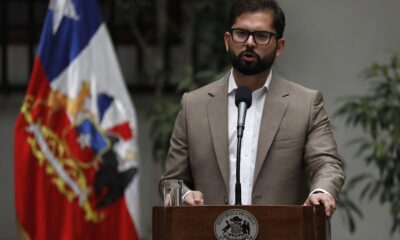International
Chilean television advertising slots close ahead of the plebiscite
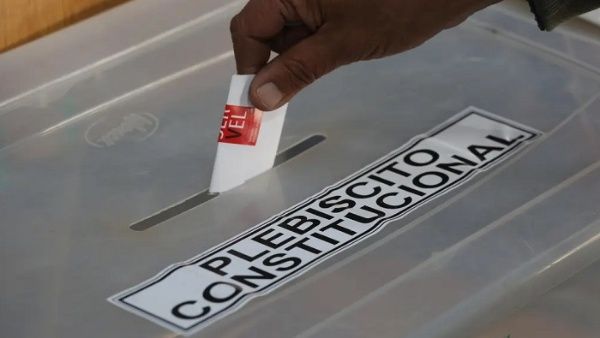
December 15 |
On Thursday ended in Chile the period conceived to display electoral propaganda regarding the constitutional proposal that will be submitted to plebiscite next Sunday, December 17, when Chileans will decide the future of the text drafted by the Constitutional Council.
On December 17, voters will receive a ballot with the following question: Are you for or against the text of the New Constitution? Two options will then appear, in favor of the proposal or against it, for voters to choose the one they prefer.
If the constitutional project is not accepted, the Law of Laws that came into force in 1980, conceived under the military dictatorship of General Augusto Pinochet (1973-1990), will remain in force.
In October 2022, a plebiscite was held on the proposed Magna Carta prepared by the Constitutional Convention, at which time the “Rejection” option won.
The process is organized by the Electoral Service of Chile (Servel). According to a pre-electoral report made public by the entity, the electoral roll is made up of 15,262,012 people at national level and 127,546 residents abroad.
The agency also detailed that 676,028 foreigners residing in Chile (with at least five years of residence, 18 years of age and without crimes) registered to participate.
On Saturday, December 16, the polling stations will be constituted and their spokespersons will be trained. The following day, the polling stations will open from 08H00 to 18H00 local time. These may be constituted with at least three members and, if they are to remain open beyond 18H00, they will do so until there are no voters left in line who wish to vote.
Voters only need their identity card to vote. This document must be valid, although ID cards that have expired after January 1, 2020 will be accepted. Voters with any type of disability will be able to access the assisted voting option.
According to the current law, voting is mandatory for those who are registered in the electoral roll and reside in Chile. For those who vote from abroad, it is voluntary.
Chileans who are more than 200 km away from their electoral domicile, are absent from the country or suffer from an illness are excluded from the obligation to vote. Those who are far from their electoral district must -among other requirements- go to the nearest Carabineros Police Station, obtain a certificate and then submit it to a judge when summoned.
Any other impediment for not voting can also be certified, but the seriousness of this cause will be certified by a judge according to the evidence presented by the citizen.
Those who do not vote may be fined from 0.5 to 3 monthly tax units (UTM), that is, from 32,108 pesos to 192,648 pesos (US$36-215).
Chile applies a dry law period. This will start on December 17 at 05H00 and will last until 20H00 local time (two hours after the electoral closing time).
In addition, those commercial establishments that are not attended by their owners will be closed, since election days are declared holidays for workers in this sector. Those who work providing essential services and do not have time off, will receive a two-hour leave to vote.
International
DHS Secretary Kristi Noem’s Purse Stolen in D.C. Restaurant Heist

The purse of Kristi Noem, Secretary of the Department of Homeland Security, was stolen on Sunday night at a restaurant in Washington, D.C., Fox News Digital confirmed through several agency sources.
The handbag, taken by a white male wearing a mask, reportedly contained $3,000 in cash along with personal documents, including her passport, keys, driver’s license, and DHS badge, according to an agency spokesperson.
“Her entire family was in town, including her children and grandchildren. She was celebrating her retirement by treating them to dinner, activities, and Easter gifts,” the spokesperson added.
Crime continues to be a significant issue in the U.S. capital, particularly theft. However, violent crime reached its lowest level in 30 years last year, according to the Office of the Attorney General at the time.
International
Pope Francis: The Quiet Architect Behind the U.S.-Cuba Thaw
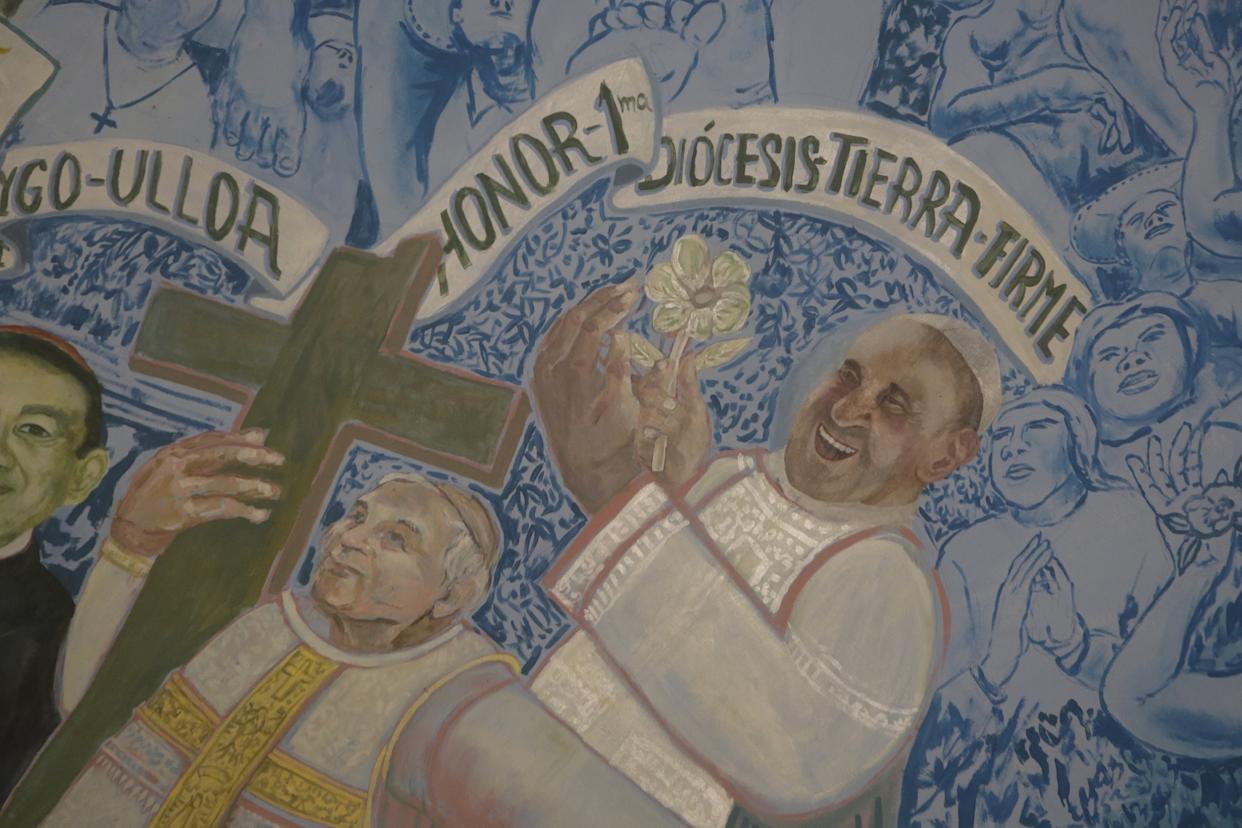
When then-U.S. President Barack Obama and Cuban President Raúl Castro announced the reestablishment of diplomatic relations in December 2014—after decades of hostility—there was a third figure present in both speeches: Pope Francis.
This thaw in U.S.-Cuba relations—later reversed by Donald Trump—was the result of behind-the-scenes negotiations personally encouraged by Pope Francis, who passed away on Monday at the age of 88, just over a year after becoming head of the Catholic Church.
Upon learning the news of the breakthrough, the pontiff humbly stated, “This was made possible thanks to the ambassadors and to diplomacy,” which he called “a noble, very noble job.”
In 2015, months after the announcement, Raúl Castro visited the Vatican and met with the pope. Over time, Castro developed a fondness for Francis that he never had for his predecessors, Benedict XVI and John Paul II. “If the Pope continues talking like this, sooner or later I’ll start praying again and return to the Catholic Church—and I’m not joking,” said the younger Castro, who, like his brother Fidel (1926–2016), had been educated by Jesuits—the same order to which Pope Francis belonged.
Pope Francis visited Cuba later that year. Just days before his arrival, the Cuban government announced the pardon of 3,522 common prisoners as an act of clemency.
While in Havana, the pope met with Fidel Castro, who gave him a first edition of the book Fidel and Religion by Brazilian friar and liberation theologian Frei Betto.
Criticism from the Opposition
Francis’s diplomatic approach also drew criticism from parts of the Cuban opposition. In a 2022 interview with Univision, the pope revealed he had “a human relationship” with Raúl Castro.
International
Dominican Republic Declares Three Days of Mourning for Pope Francis

Dominican Republic President Luis Abinader has declared three days of national mourning starting Tuesday following the death of Pope Francis, who passed away on Monday at the age of 88 in his residence at the Casa Santa Marta.
In an official decree, Abinader highlighted the pope’s legacy “as a global leader who promoted significant reforms within the Catholic Church and was known for his humility, openness to dialogue, and commitment to peace among nations.”
During the mourning period, the national flag will be flown at half-staff at military facilities and public buildings.
According to a statement from the Office of the Presidency, although Pope Francis never visited the Dominican Republic during his papacy, he maintained a close relationship with the country. He expressed solidarity and empathy during difficult times, including offering prayers for the victims of the recent tragedy at a Santo Domingo nightclub on April 8, which claimed 232 lives and left more than 180 injured.
-

 Central America5 days ago
Central America5 days agoNicaraguan Exiles to Mark 7th Anniversary of 2018 Protests with Global Commemorations
-

 International5 days ago
International5 days agoDominican ‘False Hero’ Arrested for Faking Role in Nightclub Collapse That Killed 231
-

 Central America3 days ago
Central America3 days agoUN complaint filed against Costa Rica over detention of migrant children
-

 International3 days ago
International3 days agoACLU seeks emergency court order to stop venezuelan deportations under Wartime Law
-

 Central America2 days ago
Central America2 days agoSenator Van Hollen Meets with Deported MS-13 Member in El Salvador; Trump and Bukele React
-

 International2 days ago
International2 days agoThousands rally nationwide against Trump’s threat to U.S. democracy
-

 International2 days ago
International2 days agoPope Francis Appears for Easter Blessing, Calls for Peace and Religious Freedom
-

 Central America10 hours ago
Central America10 hours agoCardinal Rodríguez to Attend Funeral of Pope Francis: “He Was Very Dear to Me”
-

 Central America10 hours ago
Central America10 hours agoNicaragua’s Ortega and Murillo Mourn Pope Francis, Acknowledge ‘Difficult’ Relationship
-

 International10 hours ago
International10 hours agoDominican Republic Declares Three Days of Mourning for Pope Francis
-

 International10 hours ago
International10 hours agoDHS Secretary Kristi Noem’s Purse Stolen in D.C. Restaurant Heist
-

 International10 hours ago
International10 hours agoPope Francis: The Quiet Architect Behind the U.S.-Cuba Thaw














